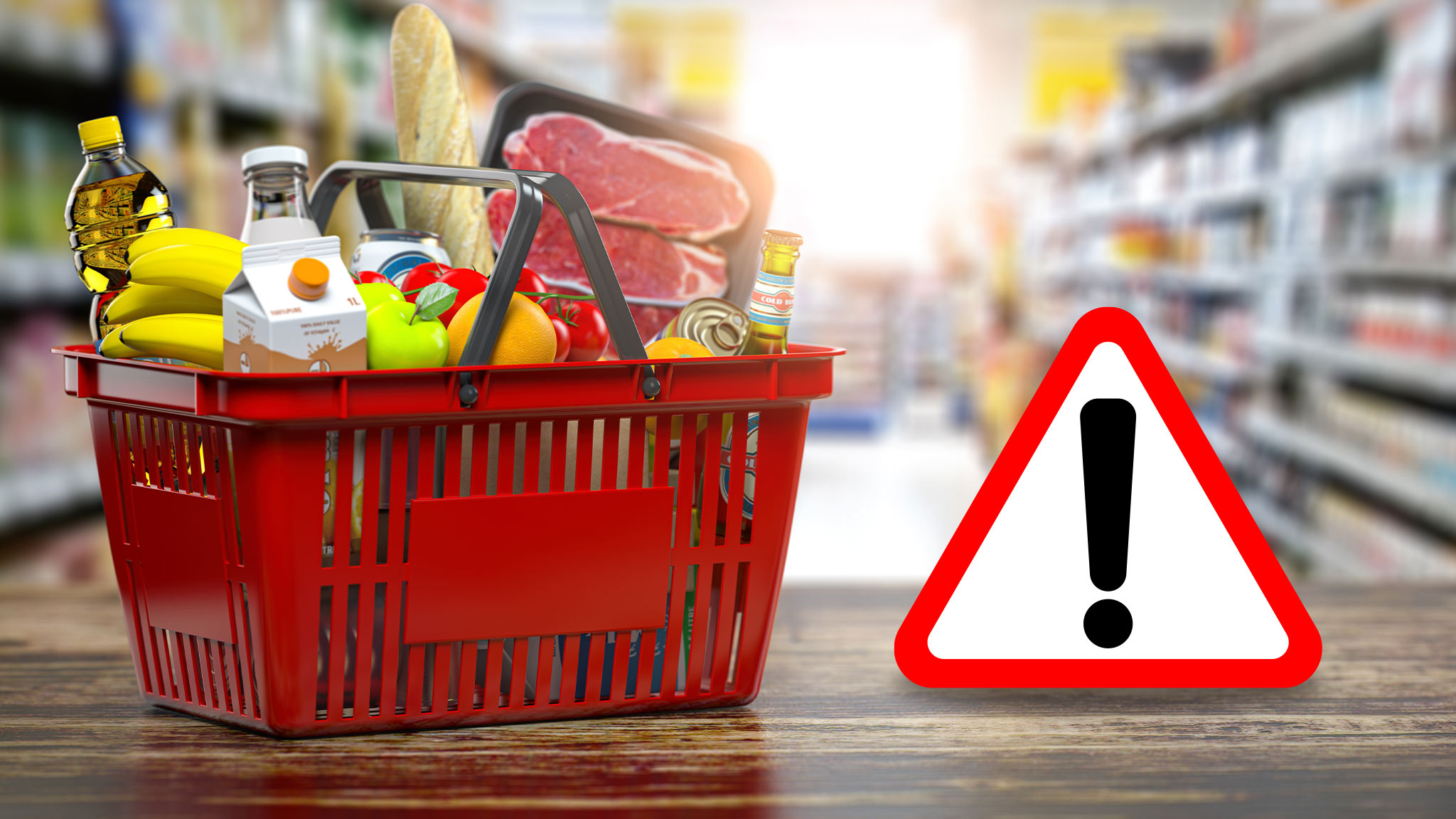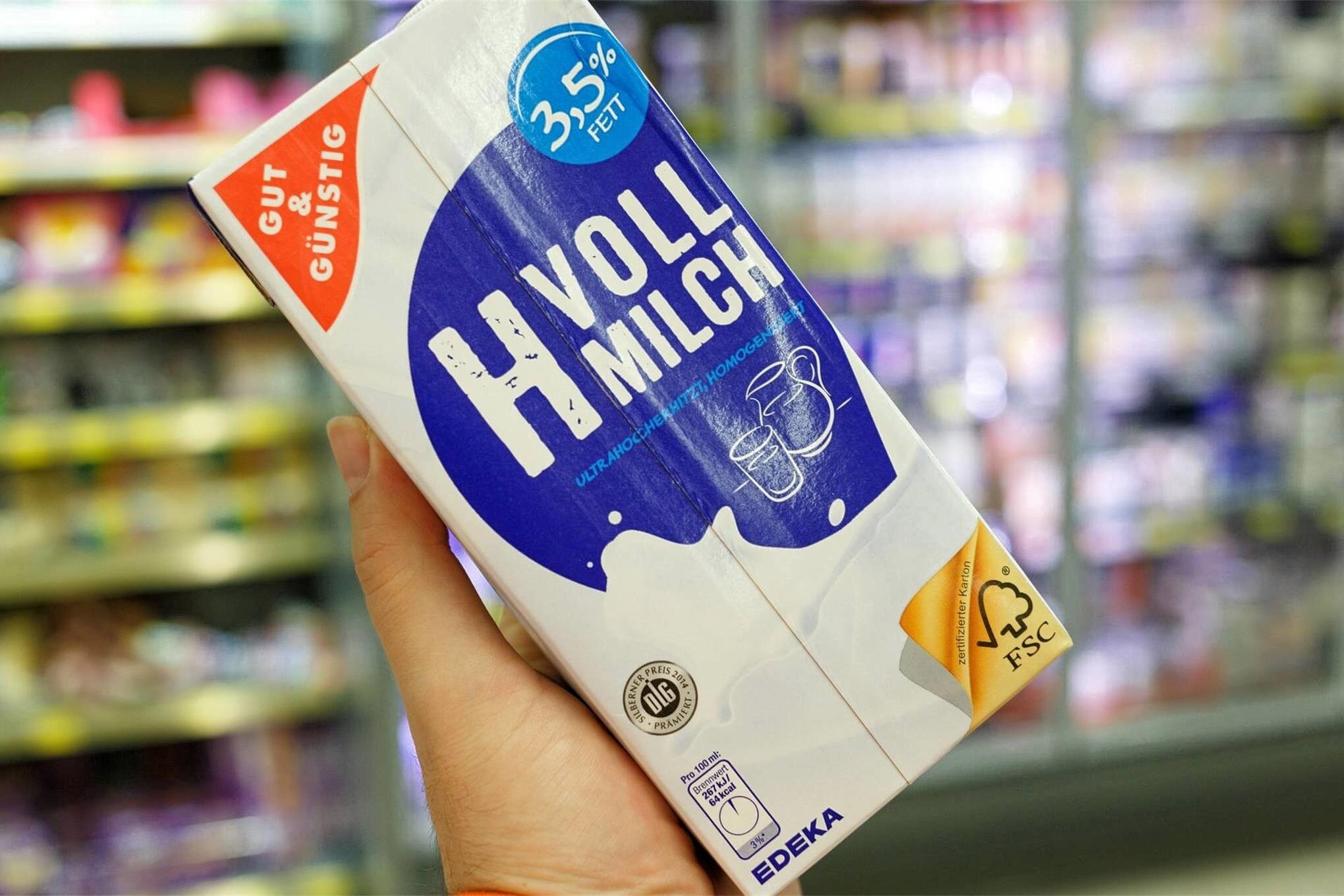Edeka Ruft Obst Zurück: Gesundheitsrisiko Durch Bakterien
September 01, 2024
Edeka Ruft Obst Zurück: Gesundheitsrisiko Durch Bakterien,
in Germany, Edeka has recalled various fruits due to a health risk caused by bacteria.
The affected products include strawberries, blueberries, raspberries and blackberries from different brands.
Consumption of these fruits can lead to gastrointestinal issues such as diarrhea, vomiting, and abdominal pain.
Customers who have purchased these products are advised to return them to the store for a full refund.
Our extensive research, analysis, and efforts to uncover vital insights about Edeka Ruft Obst Zurück: Gesundheitsrisiko Durch Bakterien have culminated in this guide, providing crucial information you need to know.
| Characteristic | Edeka Ruft Obst Zurück: Gesundheitsrisiko Durch Bakterien |
|---|---|
| Type | Fruit Recall |
| Affected Products | Strawberries, Blueberries, Raspberries, Blackberries |
| Reason for Recall | Health risk due to bacteria |
| Symptoms | Gastrointestinal issues (diarrhea, vomiting, abdominal pain) |
| Advice for Customers | Return affected products to the store for a full refund |
Stay tuned for more updates and information on Edeka Ruft Obst Zurück: Gesundheitsrisiko Durch Bakterien. In the meantime, you can find more details on the official website of Edeka or your local health authority.

Edeka ruft dieses Produkt zurück – es droht Erbrechen - COMPUTER BILD - Source www.computerbild.de
FAQ - Edeka Recalls Fruit: Health Risk Due to Bacteria
Following the detection of harmful bacteria in certain fruit products, Edeka has issued a recall. This FAQ aims to provide pertinent information regarding the recall, potential health risks, and recommended actions for consumers.

Edeka ruft Frischei-Produkt zurück - Gefahr durch Metallteile - Source www.ruhrnachrichten.de
Question 1: What types of fruit products are affected by the recall?
The recall primarily affects organic strawberries, blueberries, and raspberries sold in Edeka stores throughout Germany. Additional products may be added to the recall list as the investigation progresses.
Question 2: Why were these fruit products recalled?
The recall was initiated due to the presence of Norovirus in the affected fruit products. Norovirus is a highly contagious virus that can cause severe gastrointestinal symptoms, including vomiting, diarrhea, nausea, and abdominal pain.
Question 3: What are the potential health risks associated with consuming contaminated fruit?
Individuals who consume contaminated fruit may experience Norovirus infection, which can lead to dehydration, electrolyte imbalance, and, in rare cases, hospitalization. Symptoms typically develop within 12-48 hours after exposure to the virus.
Question 4: What should consumers do if they have purchased the affected fruit products?
Consumers who have purchased the recalled fruit products are advised to discard them immediately and not consume them. Additionally, thorough cleaning and disinfection of any surfaces that may have come into contact with the fruit is recommended.
Question 5: How can consumers stay informed about the recall and related updates?
Regularly checking the Edeka website and social media channels for official updates is recommended. Consumers may also contact Edeka's customer service hotline for further assistance.
Question 6: What measures is Edeka taking to address the situation?
Edeka is working closely with relevant authorities to investigate the source of the contamination and ensure that all affected products are removed from the market. The company is also implementing enhanced quality control measures to prevent similar incidents in the future.
Consumers are urged to follow the recommended guidelines and stay vigilant to protect their health. By working together, we can effectively minimize the potential health risks associated with this recall.
Tips
Heed these essential tips to minimize the health risks associated with Edeka Ruft Obst Zurück: Gesundheitsrisiko Durch Bakterien:
Tip 1: Thoroughly Wash Produce
Wash all fruits and vegetables thoroughly under running water before eating or juicing them. Use a vegetable brush to remove any dirt or bacteria that may be present.
Tip 2: Avoid Damaged Produce
Discard any fruits or vegetables that are bruised, damaged, or have signs of rot. These areas can harbor bacteria more easily.
Tip 3: Cook Fruits and Vegetables
Cooking fruits and vegetables can kill harmful bacteria that may be present. This is especially important for pregnant women, the elderly, and those with weakened immune systems.
Tip 4: Peel Produce When Possible
Peeling fruits and vegetables removes the outer layer where bacteria can accumulate.
Tip 5: Store Produce Properly
Fruits and vegetables should be stored in the refrigerator at temperatures below 40°F (4°C). Remove any produce that has spoiled or gone bad.
By following these tips, you can reduce your risk of exposure to harmful bacteria that may be present on fruits and vegetables.
For more detailed information on food safety, consult reputable sources such as the Centers for Disease Control and Prevention (CDC) or the United States Department of Agriculture (USDA).
Edeka Ruft Obst Zurück: Gesundheitsrisiko Durch Bakterien
The recent recall of fruit by Edeka due to bacterial contamination poses serious health risks to unsuspecting consumers. To thoroughly understand the significance of this issue, it is imperative to examine its multifaceted aspects:
- Contaminated Fruit: The source of the problem lies in the presence of harmful bacteria on the fruit, making it unsafe for consumption.
- Pathogenic Bacteria: The specific strain of bacteria responsible for the contamination can cause severe illness, ranging from gastrointestinal distress to more serious complications.
- Recall and Warnings: Edeka's prompt recall and public warnings demonstrate their commitment to consumer safety and efforts to mitigate the risks.
- Affected Products: Identifying the specific fruit products affected by the recall is crucial for consumers to avoid potential exposure.
- Prevention and Hygiene: Proper handling, storage, and preparation of fresh produce can significantly reduce the risk of bacterial contamination.
- Public Health Impact: Foodborne illnesses due to bacterial contamination pose a substantial public health concern, highlighting the importance of food safety measures.
Understanding these key aspects empowers consumers with the knowledge to make informed decisions regarding food safety. By adhering to proper hygiene practices and being aware of potential risks, individuals can effectively protect themselves and their families from the adverse effects of bacterial contamination in food products.

Warnung: Edeka ruft Donauwelle von Schäfer‘s zurück - Source www.abzonline.de
Edeka Ruft Obst Zurück: Gesundheitsrisiko Durch Bakterien
The presence of bacteria in food can pose serious health risks. Edeka, a German supermarket chain, recently issued a recall for certain fruits due to contamination with potentially harmful bacteria. This incident highlights the importance of food safety and the need for consumers to be aware of the potential hazards associated with consuming contaminated food.

Gesundheitsgefahr: Edeka ruft H-Milch zurück - Source www.freiepresse.de
Bacteria can contaminate food through various sources, including poor handling practices during production, processing, or storage. Consuming food contaminated with harmful bacteria can lead to a range of illnesses, from mild gastrointestinal symptoms to more severe infections that may require hospitalization. Symptoms of foodborne illness can include nausea, vomiting, diarrhea, abdominal cramps, fever, and fatigue. In some cases, foodborne illness can even be life-threatening.
The recall issued by Edeka is a reminder of the importance of food safety practices. Consumers should always follow safe food handling guidelines, such as washing hands thoroughly before and after handling food, cooking food to the proper temperature, and refrigerating perishable foods promptly. By following these guidelines, consumers can help reduce the risk of foodborne illness and protect their health.
Food safety is a shared responsibility between food producers, retailers, and consumers. By working together, we can ensure that food is safe to eat and that consumers are protected from the risks of foodborne illness.
Conclusion
The recall of fruits by Edeka due to bacterial contamination highlights the importance of food safety. Consumers should be aware of the potential hazards associated with consuming contaminated food and follow safe food handling practices to reduce the risk of foodborne illness. Food producers and retailers also have a responsibility to ensure that food is safe to eat. By working together, we can create a food system that is safe for everyone.
0 komentar